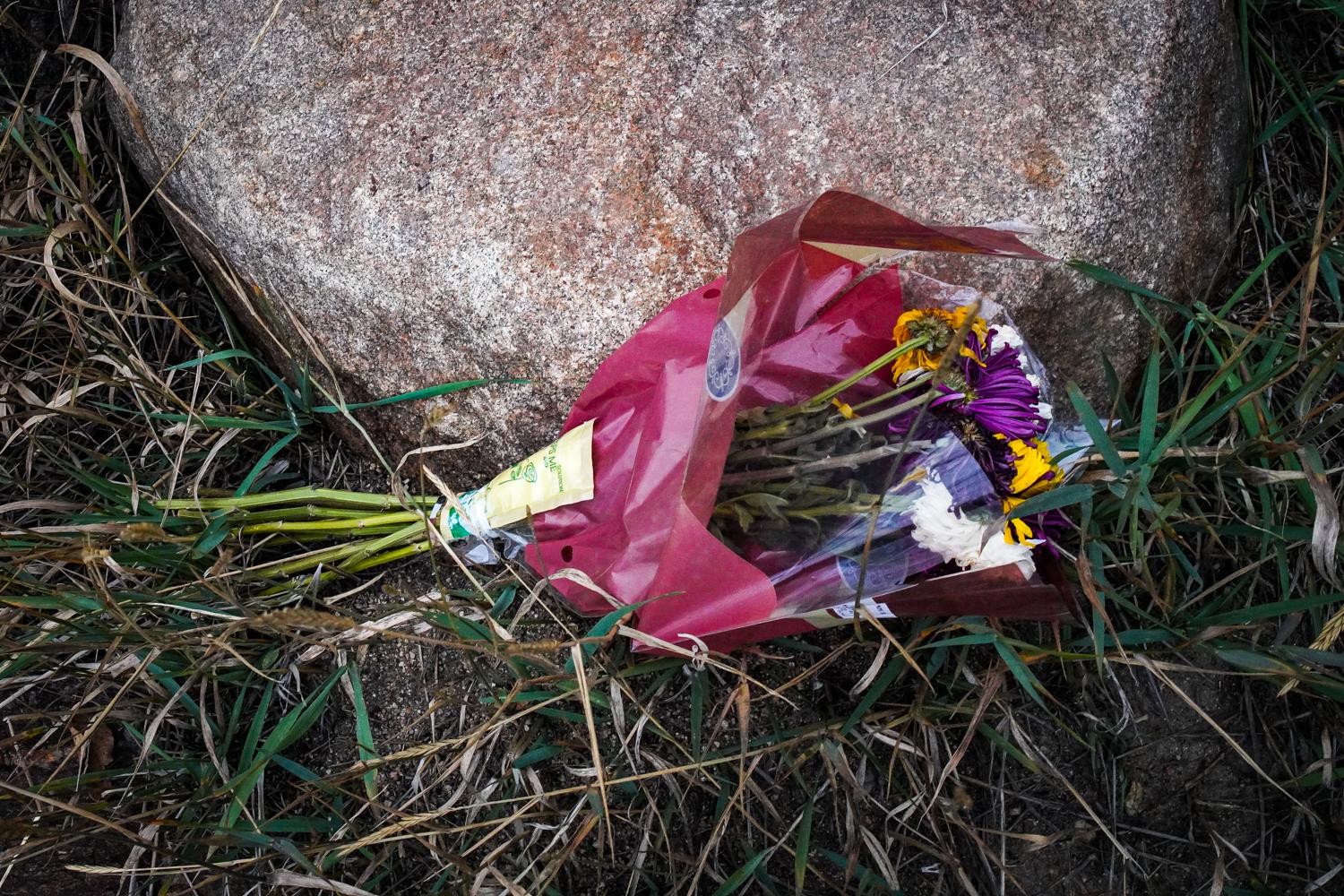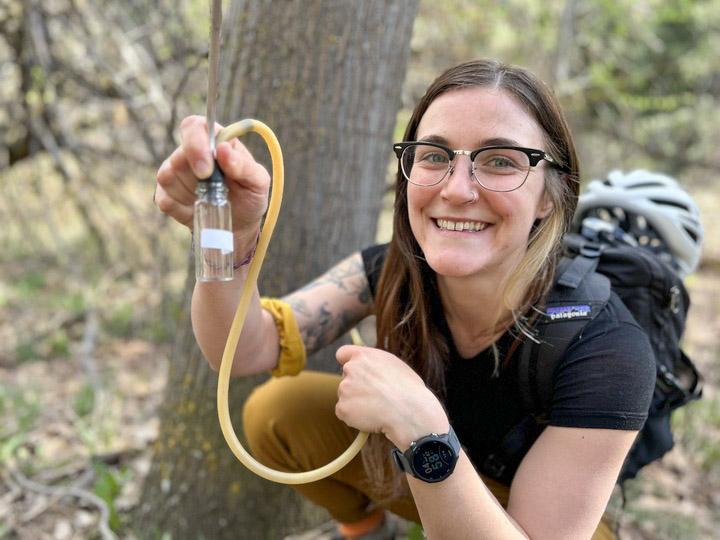
Former president Donald Trump’s future as a political candidate goes on trial in a Denver courtroom today.
Over the course of a weeklong hearing, lawyers representing four Republican and two unaffiliated voters will make the case that Trump’s post-election actions violated the 14th Amendment and therefore make him ineligible to run for president again.
The case turns on a clause of the post-Civil War amendment that states anyone who’s sworn an oath to uphold the U.S. Constitution — that is, people who’ve served in the military or elected office — who have then “engaged in insurrection or rebellion against the same, or given aid or comfort to the enemies thereof” are barred from holding office in the future.
The complaint argues that Trump committed insurrection when he “dishonestly and unlawfully tried to overturn the 2020 election results through multiple avenues. When that failed, he summoned tens of thousands of enraged supporters for a “wild” protest in Washington, D.C. on January 6, 2021.”
On the other side, the former president’s lawyers will argue he only participated in constitutionally protected political speech and never directly engaged in an uprising against the government.
Trump supporters cry foul
Lawyers for Trump tried repeatedly, and unsuccessfully, to get the case thrown out before this week’s hearing.
“At no time do Petitioners argue that President Trump did anything other than engage in either speaking or refusing to speak for their argument that he engaged in the purported insurrection,” wrote attorney Geoffrey Blue in his motion to dismiss.
Blue also argues that what’s known as the disqualification clause only applies to those who actively commit insurrection, instead of instigating others to act.
For his part, Trump dismissed the suit in a post on his social media site, Truth Social, writing shortly after it was filed that “it is just another ‘trick’ being used by the Radical Left Communists, Marxists, and Fascists, to again steal an Election…” The Colorado GOP has also weighed in, sending a fundraising email that brands the people behind the suit as “despicable malcontents” attempting to rob Colorado voters of options on the ballot.
On the ground level, Coloradans who were looking forward to voting for Trump again are frustrated to see the effort to keep him off their ballots.
“That's just unbelievably ridiculous. They can't do that,” said Republican Joann Baker of Castle Rock. “I don't know what's happened to my state.”
She said as of now she plans to vote for Trump in the Republican primary even though she sees downsides to his candidacy.
“The problem with Trump is that nothing will ever get done again because there's so much hatred on both sides,” Baker said. “So we're really kind of in a tough spot right now. Kind of scary.”
Fellow Castle Rock Republican Thom Madrid dismissed concerns over Jan. 6 as a Democratic talking point.
“It was just a large gathering that got out of hand,” Madrid said. “I don't think anybody's trying to overthrow the government. That's ridiculous.”
Conservative voter John McCord, who lives outside of the Eastern Plains town of Akron, said he will just write in Trump’s name if necessary. “I think a lot of people here will because what they're doing is wrong. ”
In Colorado, write-in candidates must be approved by the Secretary of State for their votes to be counted.
Even some Trump opponents question whether using the courts to keep him off the ballot could just end up doing more damage to faith in American elections.
“In the grand scheme of how divided our country is, I don't know whether that's the right way to go forward,” said Democratic state Sen. Chris DeGruy Kennedy of Lakewood. “I think that there's a subset of the electorate that's going to feel really aggrieved if Trump were not on the ballot in Colorado.”
He said it’s best to persuade voters that Democrats are right.
“I think that's really the key. I think Joe Biden's got to beat him,” DeGruy Kennedy said
A significant case with little legal precedent
What’s known as the disqualification clause was originally included in the 14th Amendment to keep former Confederates from rejoining a government they’d gone to war against. But it has rarely been put into practice.
“Section 3 was for the most part used only for the short period between its ratification and the 1872 enactment of the Amnesty Act,” the Congressional Research Service wrote in a 2022 analysis of the clause. “The Amnesty Act removed the disqualification from most Confederates and their sympathizers.”
The researchers found the last federal use of the clause was in 1919, when Congress refused to allow a socialist representative to take his seat because he’d been convicted of espionage (the conviction was later thrown out).
The paper also notes that the clause does not require someone to have been convicted of a crime related to insurrection or rebellion in order for it to apply.
Interest in Section 3 has revived since 2020, with articles about how it could potentially be used to prevent Trump from running for president a third time. The argument gained further credence when a New Mexico state court barred a county commissioner there from holding elected office because of his participation in the Jan. 6 riot.
The group which brought that case, the liberal Center for Responsibility and Ethics in Washington, is also spearheading the Colorado suit.
“We aren’t bringing this case to make a point, we’re bringing it because it is necessary to defend our republic both today and in the future,” said CREW President Noah Bookbinder in a statement announcing the lawsuit. “January 6th was an unprecedented attack that is exactly the kind of event the framers of the 14th Amendment wanted to build protections in case of. You don’t break the glass unless there’s an emergency.”
Colorado is not the only state where this debate is playing out, although it’s the first place the argument is getting such a significant hearing. Another liberal group, Free Speech for People, has filed similar lawsuits in Michigan and Minnesota. The Minnesota case goes in front of that state’s supreme court on Thursday.
This week’s hearing
The former president, who has been making appearances in courtrooms for his other legal troubles, is not expected to participate directly in the hearing in Denver this week. Instead, both sides will call witnesses to lay out their best cases for why the Disqualification Clause should, or should not, apply to him.
The judge in the case, Sarah Wallace, was appointed to her seat in Colorado’s 2nd Judicial District just last year by governor Jared Polis. She has said she intends to move quickly to issue a written decision after the hearing concludes, with the understanding that, however she rules, the case is almost certain to be appealed up the ladder, possibly all the way to the U.S. Supreme Court.
The suit must be resolved by Jan. 5; that’s the legal deadline for Colorado’s Secretary of State to certify names for the March presidential primary ballot.
This article contains reporting from the Associated Press









